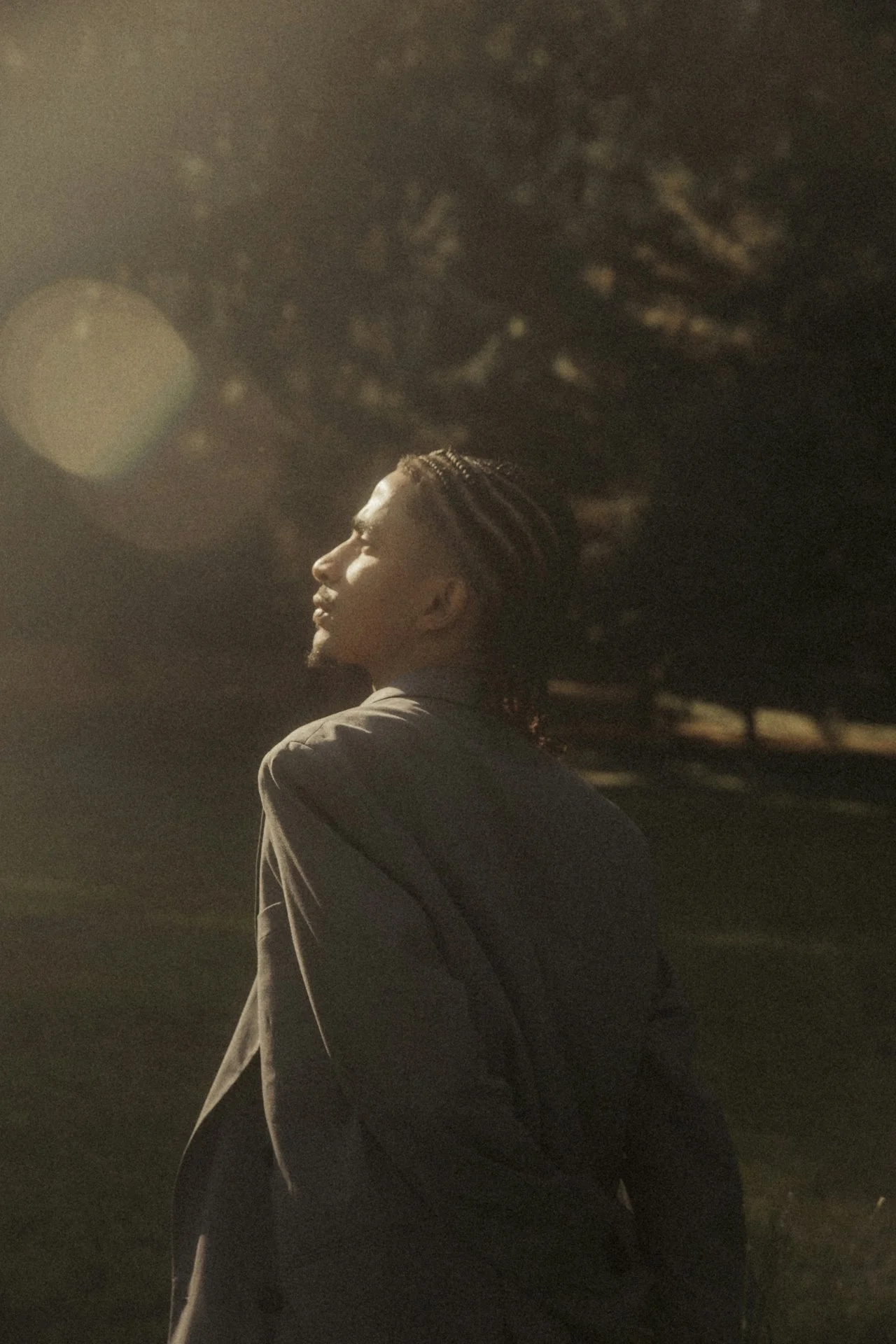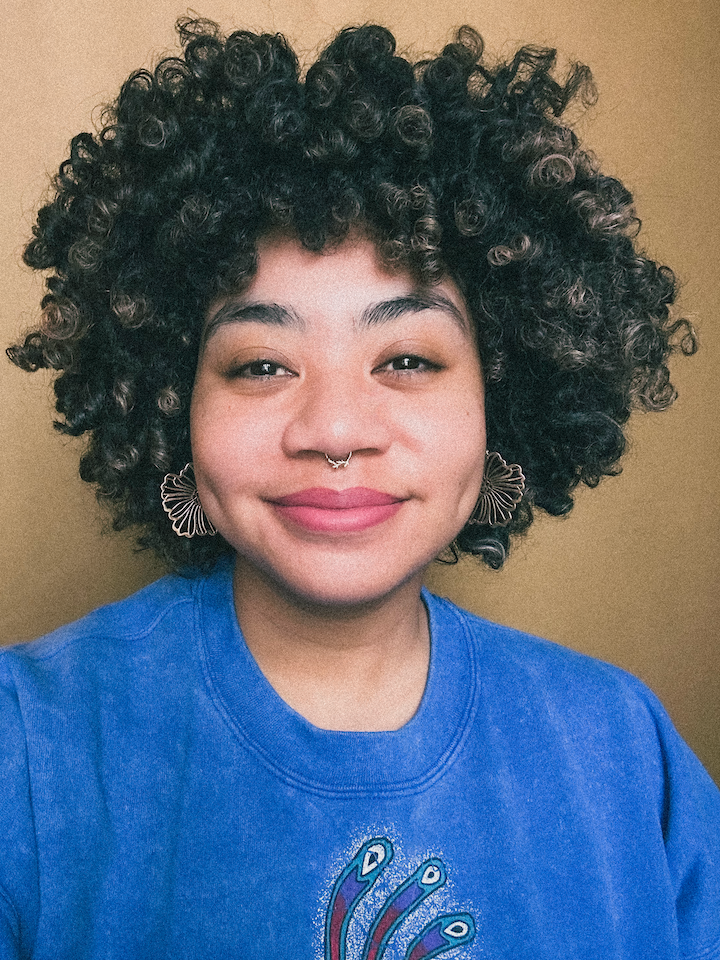How to Navigate Grief During the Holidays
The Holiday Season
Like A Love Supreme by John Coltrane, the holiday season arrives with its familiar tracks. (I'm listening to the record in the background) There might be cheerful music, twinkling lights, invitations to gather and celebrate. And, for some of us, this time of year can hold everything at once: the beautiful and the unbearable, often in the same breath.
There can still be joy and excitement alongside the sorrow. There may be moments of profound sadness, fear, and worry. It can all feel so heavy. Complicated. Confusing. And sometimes unbearably lonely.
If you're reading this while carrying grief amid many emotions, I want you to know: welcome to being human. I don’t say that flippantly. I say this in a way that reminds us as James Baldwin shared:
You think your pain and your heartbreak are unprecedented in the history of the world, but then you read.
It was books that taught me that the things that tormented me most were the very things that connected me with all the people who were alive, or who had ever been alive.
As Baldwin acknowledges, what you’re moving through (such as chapters with grief) can remind us we are connected to the vast human experience. At the same time, grief during the holidays may not always look the way we expect it to. Yes, it can be the deep and poignant ache of missing someone who has died, the empty chair at the table, the traditions that feel impossible to continue.
And grief can also show up in other, complex ways: the relationship with your parent that has shifted beyond recognition, the friendship that slowly dissolved, the vision of your life that you decided to let go, the anticipatory loss of watching someone you love change before your eyes.
All of it is grief. All of it matters. And all of it deserves space to be held with tenderness.
Why the Holidays Can Intensify What We're Carrying
There's something about this season that brings a lot to the surface. Perhaps it's the cultural expectation that we should always feel grateful, connected, full of cheer when instead, we might feel anything but. The dissonance between what we're "supposed" to feel and what we actually feel can be disorienting, even shame-inducing.
Sometimes I've noticed how this season can ask us to perform joy at precisely the moment when many of us need permission to simply be. Not be anything. Not do anything. Just be…with our sadness, with our hope, with our fear, with our delight, with our despair, with our love, with our confusion…just…be.
This is where we can practice being gracious with ourselves. If the cheerfulness of the season feels like it's in a different language than the one your heart is speaking right now, that doesn't mean something is wrong with you. It can just mean you're human, and you're hurting.
The holidays can also be deeply woven with memory and tradition. Those first autumn gatherings without your mother. The December where you realize your relationship with your loved one has fundamentally changed. The New Year that arrives without the future you thought you'd be living.
These moments catch us off guard, not because we've forgotten our losses, but because the season itself is designed to make us remember. And sometimes, remembering can be painful.
For those living in the tender and at times overwhelming space of anticipatory grief, that particular kind of mourning that happens while someone is still here (watching a loved one's health decline, witnessing a relationship slowly ending, or facing an impending change you cannot stop), the holidays can feel like borrowed time. You're present, and you're also bracing yourself. You're grateful, and you're also grieving what's slipping away even as you hold it.
In my work and in life when moving through grief: one of the hardest parts can often be like you have to hide your experience to take care of everyone else’s feelings and not make anyone uncomfortable around you. Like you should "be strong" for others.
Like your particular form of loss doesn't count because it's not what people typically recognize as grief. This is precisely when we may need to extend grace to ourselves, to release the expectation that we should be anything other than what we are in this moment.
Creating Space for All the Ways Grief Shows Up
Some may see a hierarchy of grief. Personally, I don’t know if I can ascribe to that view and tend to see the experience of being human as quite complex and nuanced. The loss of a loved one to death is not more valid than grieving the parent you needed but never had. They’re different experiences of loss. The end of a marriage is not less significant than saying goodbye to a dream you carried for decades. They’re different forms of grief. At the end of the day, grief is grief, and yours deserves to be honored exactly as it is.
Aligned with the Baldwin quote from above, global indigenous and ancient wisdom traditions teaches us about interdependence: the understanding that we are all connected, that our joys and sorrows are woven together in ways both visible and invisible. Your grief, unique as it is, also connects you to the vast web of human experience. Every person who has ever loved has also known loss. In honoring your grief, you honor this shared human condition.
So how do we move through this season when our hearts are tender? Here are some ways (and honestly questions) you may choose to experiment with as you honor what you're carrying, always remembering to be gracious with yourself as you navigate what feels right for you:
Tending to Grief After Death
Would you like to light a candle in their memory during a quiet moment?
Prepare their favorite dish, or skip it entirely if that feels right?
Share stories about them with people who knew them, or write to them privately (personally I've considered it an immense privilege and honor to have heard stories about people's deceased loved ones. I can't describe the deep respect I feel to just listen.)
Create a small ritual that feels meaningful: playing their favorite song, visiting a place that mattered, wearing something of theirs or something they gave you
I invite you to be tender with yourself if certain moments feel unbearable; this may look like excusing yourself, taking breaks, or changing plans
Again, the invitation is to practice and experiment with what feels best for you in these moments.
Honoring Relationships That Have Changed
Maybe you can write a letter you'll never send, naming what you're mourning.
Allow yourself to feel both gratitude for what was and grief for what isn't anymore
Release yourself from the expectation to perform closeness that no longer exists
Practice grace when you feel the absence of what used to be; longing for what was doesn't mean you're not moving forward
Being With Anticipatory Grief
I invite you to be present with what is…
Would you like to document moments that matter: photos, voice recordings, small rituals, conversations, stories?
Would it be helpful to talk about your experience with someone who can hold the complexity of the love, the fear, the exhaustion, the frustration?
Can you give yourself permission to feel conflicting emotions simultaneously? The answer might be no, not yet. And that’s okay. This is a spiral kind of journey, not a linear path with a final destination.
Is it possible to practice being warm, kind, and patient with yourself; anticipatory grief is exhausting in ways others may not understand.
Tending to Dreams That Changed Shape
Can you name what you're mourning specifically: the career, the family structure, the version of yourself you thought you'd be?
What would it be like to explore what might be emerging in its place, without rushing yourself?
Can we resist the pressure to be "grateful" before we’ve had time to grieve?
Are there new rituals or traditions that might honor this version and stage of your life?
Is it possible to extend grace to yourself for mourning what never was; these losses are real, even if others can't see them.
The truth is, there's no "right way" to grieve. Some years you'll want to honor traditions. Other years you'll need to skip them entirely. Some days you'll feel okay; others, you might feel like a wave is crashing down on you. All of it is part of the process. All of it deserves your own tender understanding.
Here is where compassion can be supportive. Not just compassion for others, but deep compassion for yourself, too. The kind of compassion that says: "This is hard, and I'm doing my best. My grief reminds me that I’m still human. My pace is my pace and I don’t have to rush my process. I don't have to perform for anyone."
This compassion invites us to hold ourselves the way we might hold a dear friend who is suffering: with gentleness, with patience, with the recognition that pain is not a sign of weakness but of our capacity to love deeply.
All of these practices: the rituals, the questions, the permission to feel, are just a few possibilities of honoring your grief. And sometimes, we may need a witness to help us hold them.
How Therapy Can Hold You Through This Season
Grief is not something we "get over." It's something we learn to hold and be with differently. And sometimes, especially during this emotionally charged season, we may need support in learning how to hold what feels too heavy to bear alone.
Therapy for grief offers something essential: a refuge where all the contradictions you’re holding: the love and the anger, the gratitude and the bitterness, the acceptance and the resistance, can exist without needing to be judged, resolved, or tidied up. Instead, we can approach them with curiosity.
Here you can say out loud the things that feel too complicated, too contradictory, or too painful to share with others. This is a space where transformation can happen not through fixing what’s ‘wrong,’ and instead through deepening your capacity to be with what is. It's a space designed specifically for you to practice being gracious and tender with yourself, often for the first time.
In sitting with clients through their losses and navigating holiday grief support, I've witnessed how transformative it can be to have dedicated time and space to process what you're carrying. Whether through ongoing psychotherapy or focused therapy intensives, again this work isn't about "fixing" your grief or rushing you through it. It's about:
Slowing down enough to feel what you're actually feeling; not what you think you should feel, not what would be easier for others if you felt, but what's genuinely alive in you right now
Cultivating self-tenderness in a culture that often demands resilience before we've had time to rest
Making meaning from loss, not in a tidy, resolved way, but in a way that honors both the pain and the love
Expanding your capacity to be with difficult emotions; not by becoming numb to them, but by discovering you're larger than any single feeling, that you can hold sorrow and still breathe, still laugh, still be fully human
Learning to listen to how grief speaks through your body: the watering of eyes, the heavy sighs, the exhaustion, the hollowness in your belly, the way you instinctively reach out or pull back
Finding language for experiences that feel impossible to articulate
Creating rituals that feel authentic to you, not prescribed by others
Recognizing interdependence: how your particular grief connects you to the larger human story, and how this connection itself can be healing
Practicing grace with yourself when the path forward feels unclear or when you need to rest rather than push through
I want to emphasize that this isn't about eliminating your grief. It's about learning to be with it in a way that doesn't consume you. It's about honoring what you've lost while also remaining open to what's still possible. It's about remembering that grief, as heavy as it is, is also evidence of love. And that love, even in loss, matters profoundly.
You Don't Have to Navigate This Alone
You really don’t. If this holiday season feels particularly raw, if your grief feels close to the surface, if you're longing for support that goes deeper than well-meaning but ultimately hollow platitudes, I see you. And I'd be honored to walk alongside you.
In my practice, I've witnessed how those who grieve deeply often possess a profound capacity for love, for empathy, for compassion, for connection, for care, for presence, for honoring what matters.
Your sensitivity to loss is not a limitation of your character, but rather a testament and a measure of your depth. These people feel the textures of life rather than skim its surface. They know that connection requires the courage to be changed by others and to be undone when they're gone.
Whether you're coping with loss during the holidays for the first time or you're years into this journey and this season is still hard, grief counseling can offer you what you might need most: a space where your experience is honored exactly as it is. A space where you can practice being gracious with yourself. A space where tenderness toward your own pain is not just permitted but encouraged.
What I offer is not a way to 'move past' your grief faster, or techniques to manage it more efficiently. What I offer is companionship through the slow, messy, nonlinear work of learning to hold your loss as part of your story rather than as an interruption to it. To discover that you can be both heartbroken and whole, as you define it.
Your grief deserves to be held and witnessed, not hidden. Part of our shared humanity is learning we don't have to move through our deepest sorrows in isolation.
Sometimes, one of the most countercultural things we can practice is allowing ourselves to be held in our grief, to let someone witness what we're carrying and remind us that we're still here, still worthy, still capable of finding meaning even in the midst of loss.
As Audre Lorde reminded the world:
Caring for myself is not self-indulgence, it is self-preservation, and that is an act of political warfare.
Yes, may we remember there can be relief, and even grace, in allowing ourselves to be held. We can cultivate the soil together from which healing, connection, and growth can flourish.
With deep compassion and grace for wherever you are in this season,
Sandy
About the Therapist
Sandy Gordon, LMFT is a depth-oriented psychotherapist in Pasadena, California, dedicated to accompanying artists, creatives, and philosophical souls through the slow, messy, nonlinear work of integration and transformation.
Her practice serves people who think deeply, feel intensely, and often experience loneliness in their complexity. What they can discover here is an experimental space for both the emotional and the existential: processing childhood wounds while wrestling with questions of purpose, integrity, and how to live with meaning in uncertain times.
Drawing from Emotionally Focused Therapy, EMDR, somatic approaches, and parts work, Sandy's practice is designed to respond and co-create rather than prescribe. She approaches therapy as a living inquiry and space where healing, philosophy, and creativity intersect.
Her work is designed for people ready to feel, not just think their way through. For those seeking both trauma processing and existential meaning-making. For individuals who want to slow down, go deep, and explore the questions that don't have easy answers.
If you're ready for depth work that honors your full humanity, she'd be honored to accompany you.







